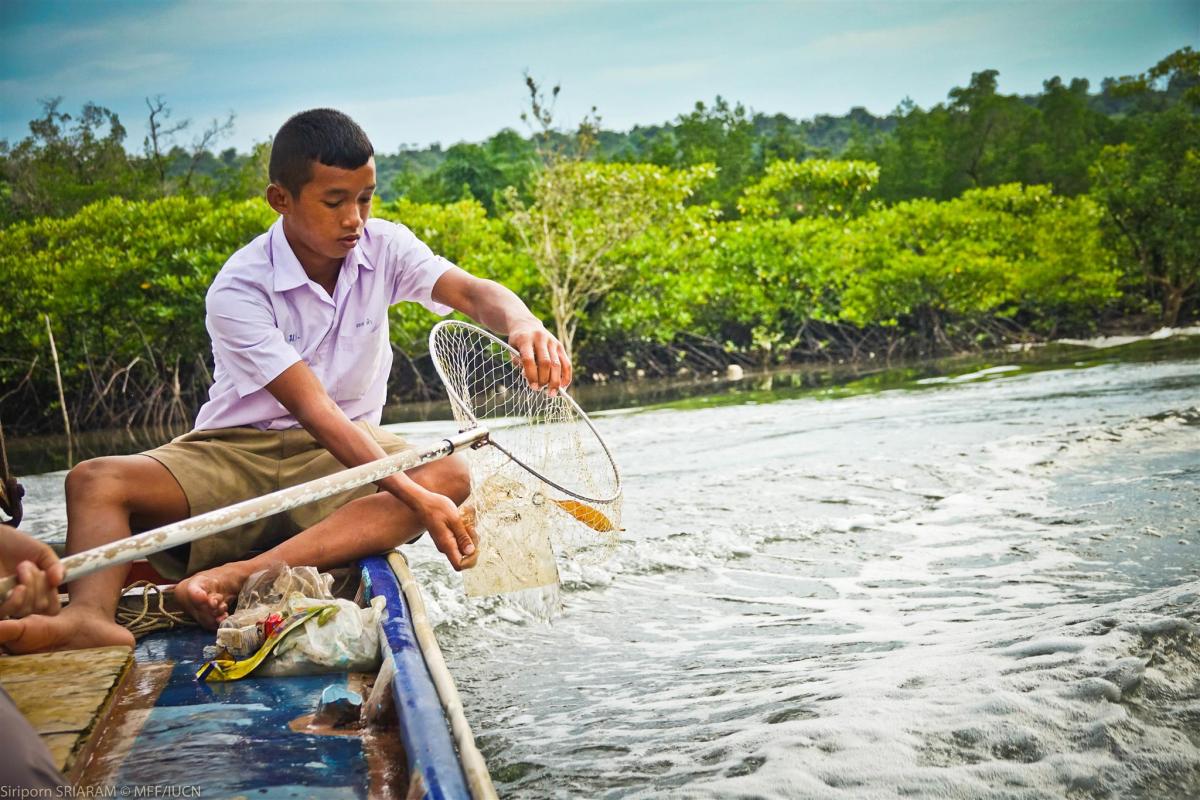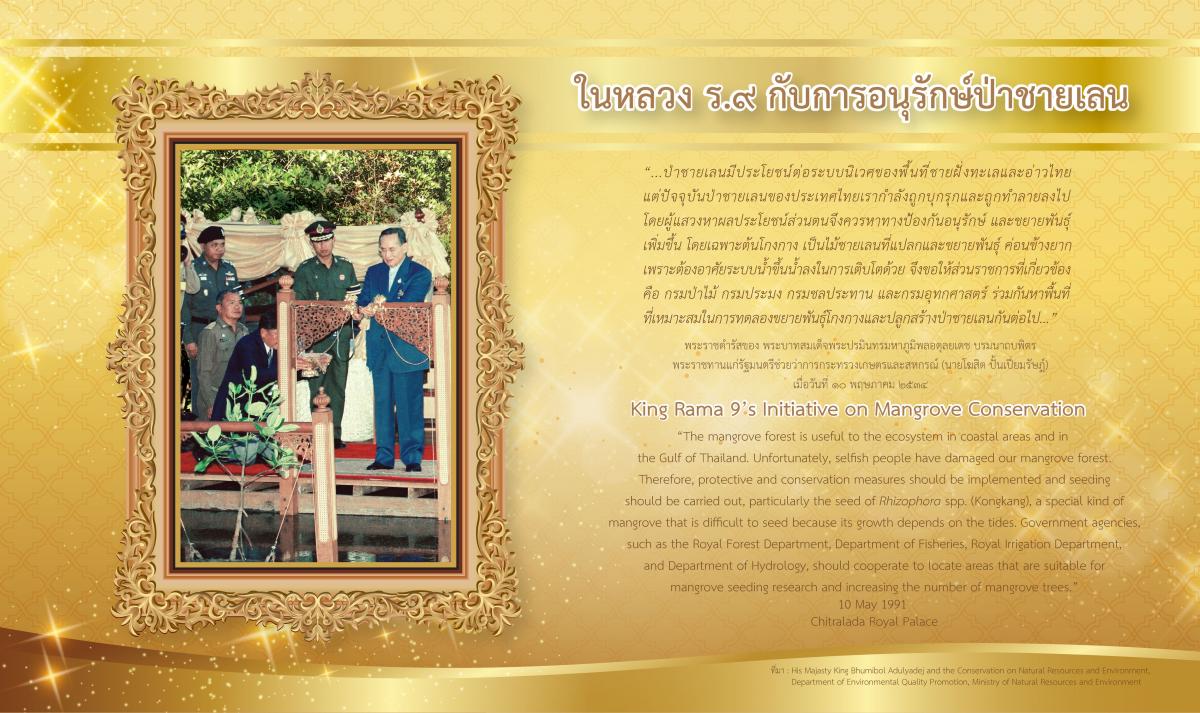More effective waste management through engaged communities
To most, it’s just a giant landfill – holding approximately 60,000 tonnes of waste. But to some of the locals of Trat province, the Had Ploy Dang dumping ground, which is located in the Mairood Sub-district is known as the ‘golden mountain’. Why? Because, according to Mr Surasak Intaraprasert, Chairperson of Mairood Tambon Administrative Organisation, “waste is gold.”
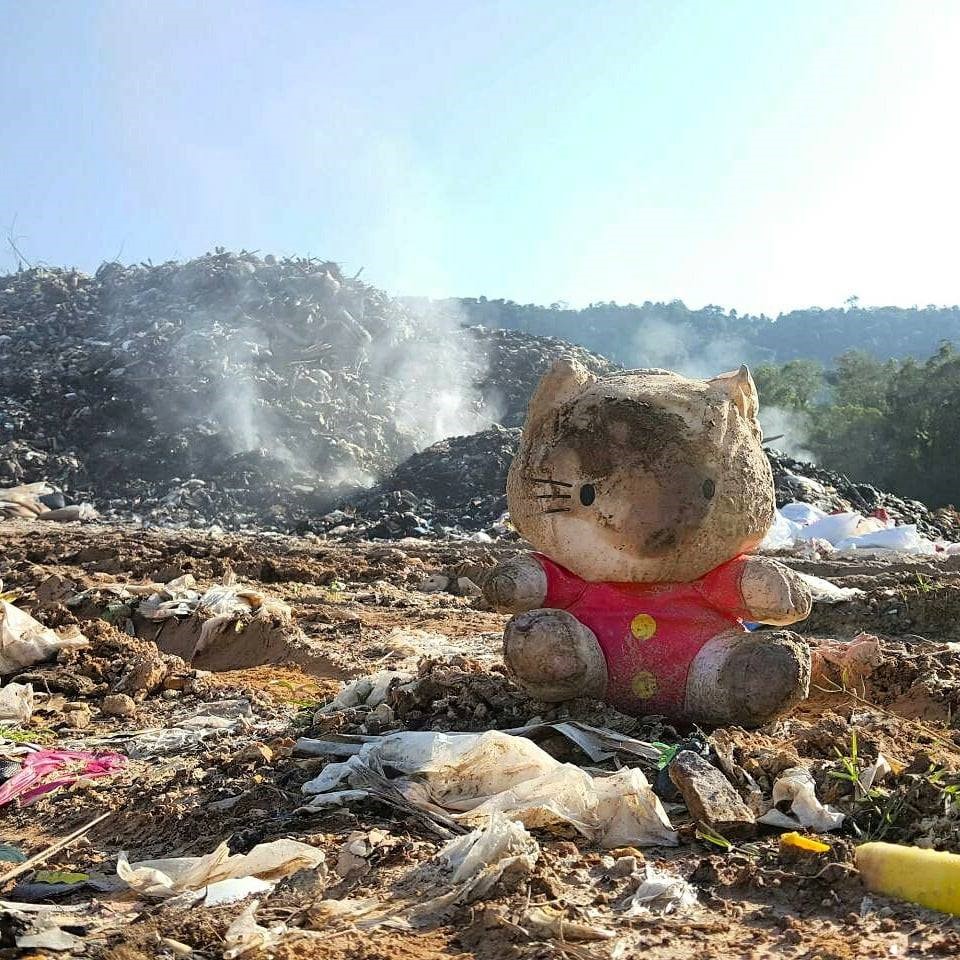
Photo: © Siriporn Sriaram / IUCN
Bordering Cambodia along the Cardamom Mountains, Trat province in Thailand comprises a number of islands with beautiful beaches and luscious coral reefs. Because it sits on a coastline, the province is constantly at risk of being polluted by waste that is dumped into the ocean on a daily basis.
To tackle the growing waste problem, MFF supported two community-based waste management projects in the province through its Small Grants facility. These projects have so far benefitted almost 1,500 households and over 700 students in Mairood – significantly more than the 600 households and 600 students initially identified as beneficiaries. In addition to the idea that engaging the community in waste management can be part of the solution to the problem, the practice also provides a possibility of extra income for the community through recycling, an opportunity which the project initially used to incentivise participation among adult community members.
Through a newly-established learning centre for waste sorting, awareness-raising activities, capacity building workshops and peer education, students and teachers at four schools in Trat are learning about sustainable waste management practices. As a majority of the population in the area depends on mangrove wetlands for fishery and agriculture, students learn how critical it is that these areas are sustainably managed and not taken over by waste.
Besides learning about the usual 3 ‘Rs’ – 'Reduce', Reuse' and ‘Recycle’ – students in Mairood also learn about ‘Rethink’, ‘Repair’, ‘Reject’ and ‘Return’. The ‘7 Rs’ intend to remind students to manage their production and consumption in a responsible manner.
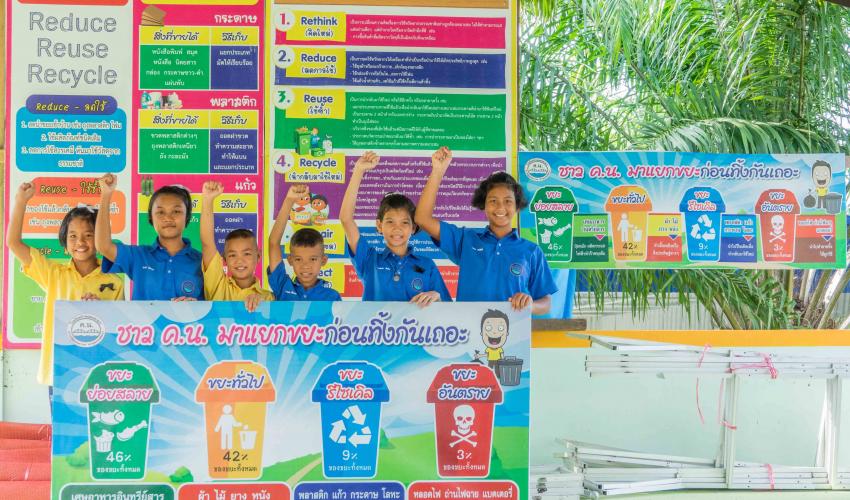 Photo: © Siriporn Sriaram / IUCN
Photo: © Siriporn Sriaram / IUCN
“Students learn about the different types of waste, and how to separate them. They know how to separate plastic straws from drink containers made out of paper, how to make plant containers by recycling plastic bottles and how to turn organic waste into compost,” said Ms. Kanchaporn Panphet, Principal of Klong Manao school.
In one of the schools, a plant nursery was set-up to encourage students to grow plants in soil mixed with organic waste compost in their recycled plastic bottle flowerpots.
One of the projects has also connected the communities with a small enterprise called Wongpanit that buys waste from communities to sell to a larger waste recycling company. This allows both the communities and the company to generate income, while reducing the amount of waste in the dumping ground.
The community-based waste-management projects in Trat do not require high-end technology, yet have proven to be effective, as income-generating waste-management systems can be maintained by participating communities.
“We encourage community members to take part – by becoming franchisees, and buying waste from people. There is good money to be made, as we can sell recyclable waste at quite a high price to the large waste recycling company,” said Mrs. Suree Phongsai, CEO of Wongpanit.
Waste management is something that the communities in Mairood take seriously, with the topic being brought up every month at village meetings. At these meetings, schools are also encouraged to participate and share experiences.
"Waste is a global problem, not just a Thailand or Mairood problem. I have been village chief for many years and I find this problem to be one of the most challenging to manage,” said Ms. Natsini Intaraprasert, Chief of Mairood sub-district.
“We wanted to work with the villagers to find a solution so we asked them what they needed. And what they needed was projects like this. If an individual produces 1 kg of waste and can reuse and reduce most of it, leaving only 20% to waste, it makes a big difference. The MFF project actually helps provincial authorities achieve their goals in reducing waste disposal. The ultimate goal here,” she added, “is to get every household to manage waste by themselves and give only 20% to the government to deal with.”
On March 27, almost 100 participants – members of Bangkok-based organisations and stakeholders from Trat – came together at a Lessons Learned Sharing Forum to identify key takeaways from the nine MFF Phase III projects that were implemented in Trat (including the two on waste management).
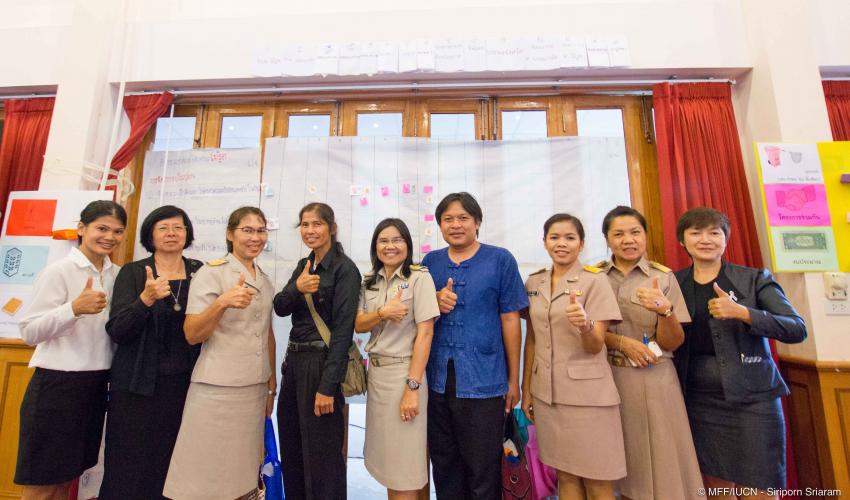 Photo: © Siriporn Sriaram / IUCN
Photo: © Siriporn Sriaram / IUCN
The lessons learned from the waste management projects were threefold: that regular communication of key messages (through media such as the provincial radio station) and the establishment of an intra-community mutual monitoring and reporting system would help develop sustainable behaviours; that the harmful effect of waste quantity was still not taken into consideration by community members when it came to otherwise benign organic waste; and that waste buyers such as Wongpanit were key to encouraging waste sorting in households.
Participants also proposed policies that would facilitate conservation activities in their communities. Key measures included a collaboration mechanism for the Tambon Administrative Authority and schools to transfer waste management knowledge from learning centres and schoolchildren to households and parents; a collaboration mechanism for information and knowledge to be transferred among community members and sub-districts; and the development and enforcement of clear waste management policy.
Most importantly, the project's key stakeholders identified the need for an individual or a group to act as a liaison between the communities and the government, to resolve issues for which the community itself does not yet have the capacity.
Mangroves for the Future (MFF) is a partnership-based regional initiative which promotes investment in coastal ecosystem conservation for sustainable development. MFF focuses on the role that healthy, well-managed coastal ecosystems play in building the resilience of ecosystem-dependent coastal communities in Bangladesh, Cambodia, India, Indonesia, Maldives, Myanmar, Pakistan, Seychelles, Sri Lanka, Thailand and Viet Nam. The initiative uses mangroves as a flagship ecosystem, but MFF is inclusive of all types of coastal ecosystem, such as coral reefs, estuaries, lagoons, sandy beaches, sea grasses and wetlands. MFF is co-chaired by IUCN and UNDP, and is funded by Danida, Norad, and Sida and the Royal Norwegian Embassy in Thailand.
